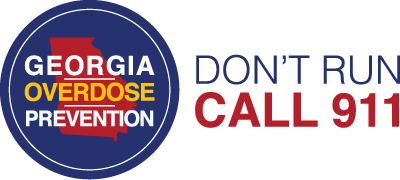WHAT IS NALOXONE?
Naloxone is an opioid antagonist. It works as an antidote for overdoses caused by opioids. Naloxone functions to reverse the respiratory depression which occurs and can be fatal in opioid overdoses. It’s not addictive and has no abuse potential. It doesn’t get someone high. It is a miracle medication.
WHAT HAPPENS IN AN OPIOID OVERDOSE?
Humans have opioid receptor sites on cells in their central nervous system, which is their brain and spinal cord. This is because we all have naturally occurring opioids in our bodies. So for example, when our bodies produce endorphins when we exercise or eat chocolate, the endorphins attach to those receptor sites and we feel a pleasurable response. Similarly, when a person takes opioids, the opioids attach to those receptor sites and can produce some pleasurable feelings. However, because opioids are central nervous system depressants, they can also cause respiratory depression, where a person breathes fewer and fewer times per minute and with more and more shallow breaths. Eventually an overdose victim’s heart, brain, and other vital organs aren’t getting a sufficient amount of oxygen to sustain life, and they can die.
HOW DOES NALOXONE WORK?
The receptor sites on the cells in the central nervous system that regulate breathing have a greater affinity for naloxone than opioids; they actually prefer naloxone over opioids. So if naloxone is put into the body of a person overdosing on opioids, the naloxone will literally push the opioids off the cells, and the naloxone will attach to the receptor sites. However, naloxone does not block the breathing response, so an overdosing person can take a breath and is able to resume normal breathing.
WHAT ELSE IS IMPORTANT TO KNOW ABOUT NALOXONE?
- Naloxone only works on opiates and opioids, so it works on drugs such as: heroin, fentanyl and fentanyl analogues, methadone, hydrocodone, OxyContin, Roxicodone, Dilaudid, morphine, codeine, etc.
- Naloxone will not work on: methamphetamines, cocaine, alcohol, benzodiazepines like Xanax, Valium, Klonopin, or bath salts. However, most people overdose on a combination of drugs so when in doubt about what someone has overdosed on, give naloxone.
- Naloxone has no effect on a person who has not taken opioids.
- You cannot overdose a person with naloxone by giving too much of it.
- Naloxone lasts 30-90 minutes, but then a person can go back into their overdose. That is why it is critically important to stay with the victim until medical help arrives and to call 911.
- The most current research on the expiration of naloxone found that naloxone lasts at least 28 years past the printed expiration date. If naloxone is needed, use it on an overdose victim regardless of the expiration date. You are protected legally for administering expired naloxone in GA.
- Naloxone is very temperature hardy. It has been tested between -28 to 126 degrees Fahrenheit for 30 days and only lost 10% of its efficacy. Keep it where it’s most likely to be used, like in your pocketbook.
- Many commercial insurance companies, Medicaid and Medicare cover various forms of naloxone.
- Some naloxone products are seeking and receiving over the counter status.
WHAT DOES THE 911 MEDICAL AMNESTY LAW SAY REGARDING NALOXONE?
Any physician may prescribe, any pharmacist may dispense, and any person who knows a person at risk can obtain and administer naloxone, and all are free from civil, criminal, and professional liability for doing so. Law enforcement may carry and administer naloxone. Naloxone is available for purchase at GA pharmacies without a personal prescription.

